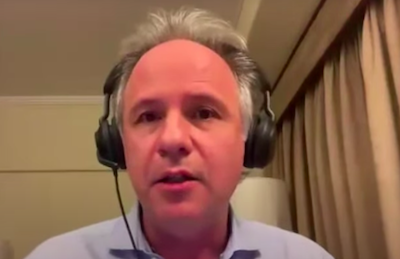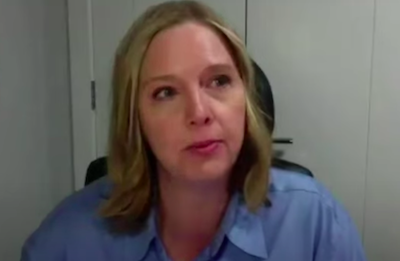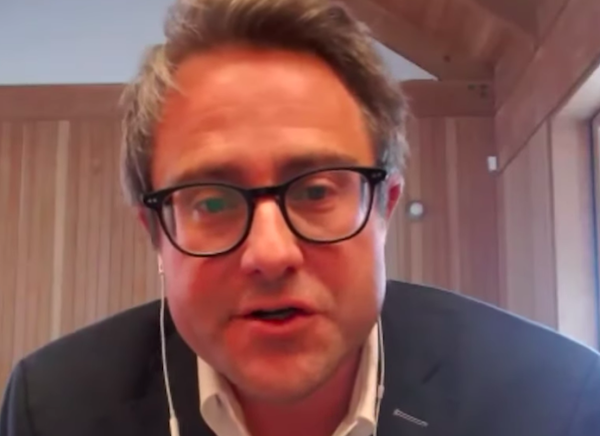Vancouver Police last week arrested a woman for praising the Oct. 7 terrorist attacks. The woman, who multiple reports say is Charlotte Kates, a leader in a group called Samidoun Palestinian Prisoner Solidarity Network, was later released as police develop their case to present to the Crown for possible charges.
News of the arrest was met with a level of satisfaction among Jewish community organizations. Kates and Samidoun have been sources of outrage and concern for years. The group is routinely described as having “direct ties to the Popular Front for the Liberation of Palestine (PFLP),” which is designated as a terrorist entity under the Criminal Code of Canada. Canadian Jewish organizations have called for Samidoun to receive a similar censure – as it has in Germany, where it is a banned organization, and in Israel, where it is designated as a terrorist entity.
Kates, a British Columbia woman who is married to Khaled Barakat, a senior member of the PFLP, was arrested in relation to recorded statements made outside the Vancouver Art Gallery last month. There, she referred to several terrorist organizations as heroes and described the Oct. 7 attacks as “the beautiful, brave and heroic resistance of the Palestinian people.” She led a crowd of hundreds in chants of “long live Oct. 7.”
Emergence of the video led to absolute condemnation from BC Premier David Eby.
“Celebrating the murder, the rape of innocent people attending a music festival, it’s awful,” said the premier. “It’s reprehensible, and it shouldn’t take place in British Columbia. There is clearly an element of some individuals using an international tragedy to promote hate that’s completely unacceptable.”
Kates is banned from participating in public protests for five months, according to a statement released by Samidoun. An investigation is underway and it will be up to Crown prosecutors to determine whether charges are laid and the case goes to trial.
In announcing the arrest, Vancouver police spokesperson Sgt. Steve Addison explained the line police walk.
“We defend everyone’s right to gather and express their opinions, even when those opinions are unpopular or controversial,” said Addison. “We also have a responsibility to ensure public comments don’t promote or incite hatred, encourage violence, or make people feel unsafe. We will continue to thoroughly investigate every hate incident and will pursue criminal charges whenever there is evidence of a hate crime.”
The arrest comes as the federal government begins a process of reviewing Canada’s approach to hate-motivated expression. New legislation beginning its way through the wending process of Parliament is focused especially on “online harms” and involves a multi-pronged approach that would see amendments to the Criminal Code, the Canadian Human Rights Act and new laws addressing cyber-bullying, “revenge porn,” encouragement of self-harm and other actions.
The bill (click here for story) is part of an ongoing effort to address the social and technological challenges of hate-motivated crimes, as well as the range of dangers presented to children and others by online predators, bullies and extortionists.
The federal government’s efforts, long delayed and inevitably controversial, are part of an age-old effort to walk a line between the right to free expression, on the one hand, and the right, on the other hand, for people to be free from harassment and threats based on personal identity or other factors. Any discussion of balancing these contending rights – which is anything but an exact science – is destined to disappoint or anger people on both sides.
The next steps in the current legal investigation – whether it proceeds to criminal charges and, if so, how the case proceeds and concludes – will also not satisfy everyone, if anyone. Indeed, it is a factor of this sort of case almost exclusively where many argue the challenging position that, in the words of Voltaire, “I disapprove of what you say, but I will defend to the death your right to say it.”
Few today would defend to the death the right of anyone to glorify Oct. 7 (or anything else, probably), but the point is that the right of free expression is considered by many to be sacrosanct. This has always been a core differentiator between our society and that to which we so often compare ourselves, the United States, whose constitution prioritizes precisely this sort of freedom.
An absolutist position is much easier for courts to adjudicate. Drawing lines in moral conundrums is a much more challenging undertaking.
As we watch this one case proceed locally, we will also be carefully observing the broader, legalistic and philosophical disputations occurring in Parliament as Bill C-63 proceeds through the creation process. The outcome, in both instances, will be necessarily imperfect. The hope is that they should be as just as human endeavours can be.



